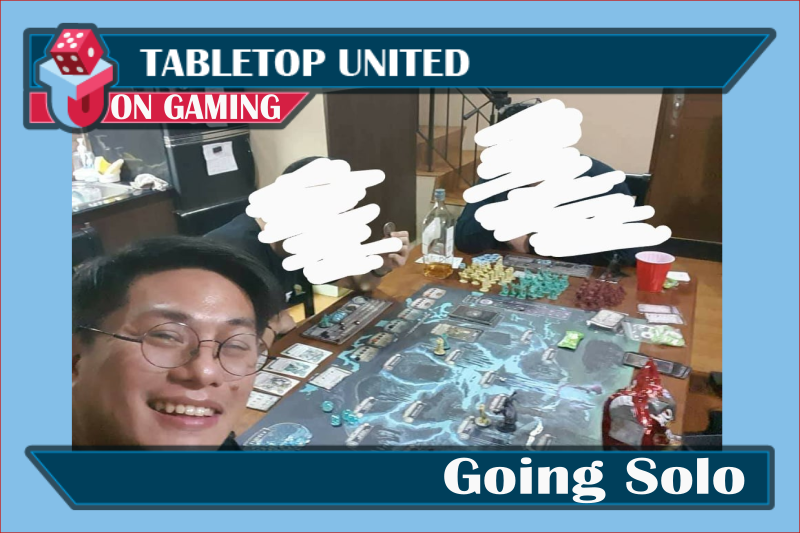
So, you have been enjoying board games for some time now. You enjoy the mental exercise of solving problems. You savor those high-five moments with friends. You like the feel of cards, tokens and miniature in your fingers. You even started to build your library of games. Happy days.
Then you realize life caught up with your gaming (which is not a bad thing). Perhaps you have found a suitable partner. You may have been blessed with kids. Chores and errands occupy most of your days. Work requires more of your time. And it’s not just you. Your playgroup’s members’ lives also started to change leading to less frequent (often with fewer players) gaming sessions.
So, why not go solo?
INTRODUCTION
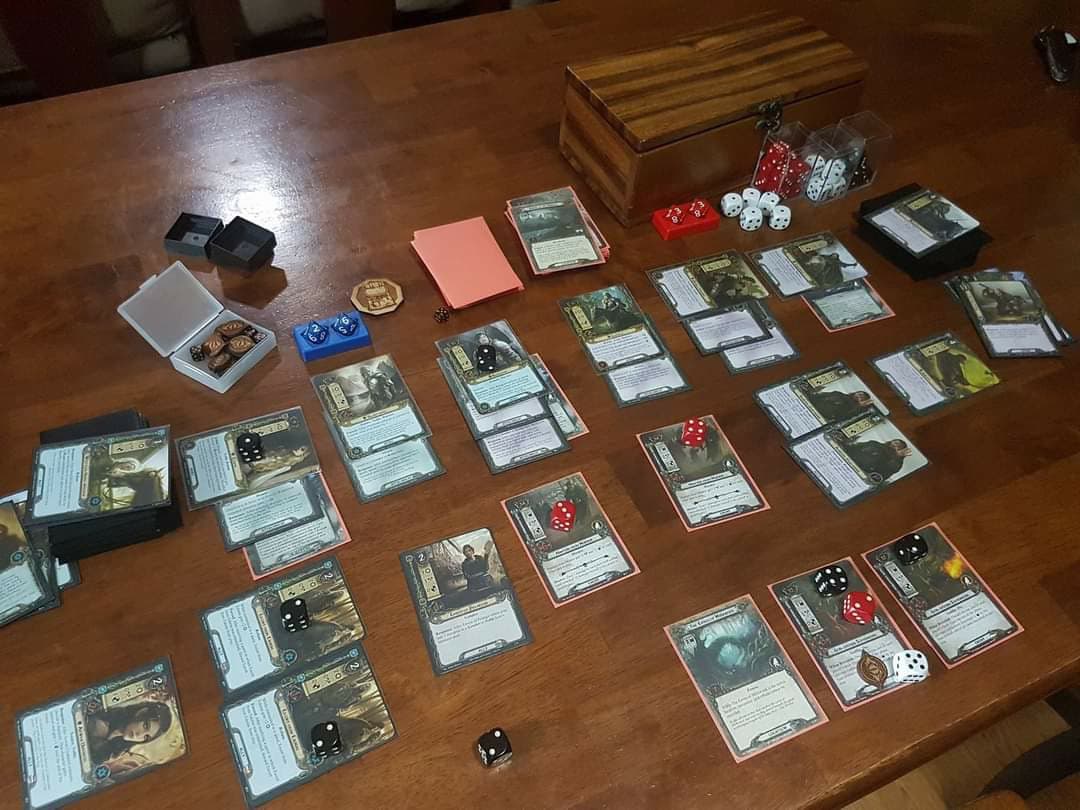
Game: Lord of the Rings, the card game (one of my favorites; I can spend hours doing deck construction).
I have been playing solo since 2017 when my friends and I took bigger steps with our respective personal and professional lives. Some even moved to different cities. I tried playing video games to scratch the gaming itch but soon found that electronic games didn’t have the same tactile experience of moving game pieces. When I browsed my collection, it was a eureka moment when I saw that one game indicated “1-4 players” on the label (Lord of the Rings LCG).
Below, I will build the case for solo board gaming. Why is it good? Why is it good for you?
WHAT IS SOLO BOARD GAMING?
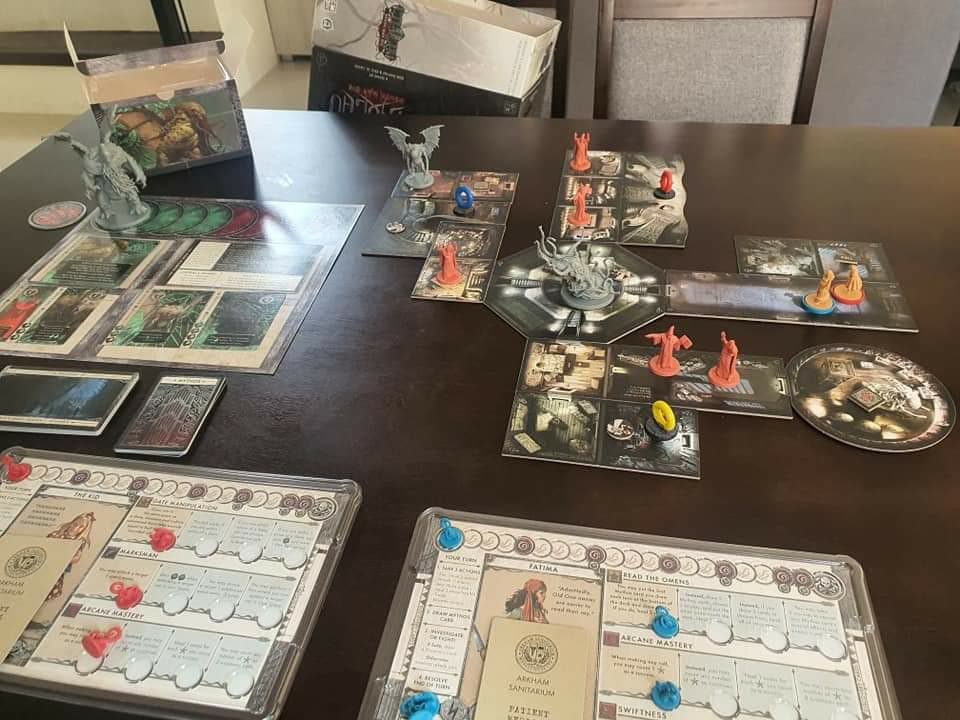
Game: Cthulhu: Death may Die (scalability of this game is really good).
Simply put, “solo board gaming” is playing tabletop games alone. You don’t wait for other players’ turns to be over. You don’t have anyone else to rely on for rules. You don’t have anyone to compete with. You don’t have sudden explosion of happy emotions when you finally beat the game. You don’t have to worry about someone cheating. It’s just you and the board game (and maybe a cat).
Solo board gaming is also liberating. You can play a game at your own pace, staring at game components for minutes while contemplating on your next move. You can do “backsies” and it wouldn’t feel like you were cheating. You can listen to music to accentuate your gaming experience. You don’t have to maneuver around friends' personalities and sensitivities. You don’t have to deal with scheduling. You can gloat, mope, or be a sore loser (or winner). The best part is that you can play games you really like.
Playing solo doesn’t mean you will completely turn your back from multiplayer games. You can still schedule a monthly gaming session with friends. It’s just you squeezing in some gaming into your busy life and often that opportunity to play comes suddenly or late in the night.
WHAT TO PLAY
These days, there are several games you can play solo. I categorized them into four types. All are acceptable ways to play solo and will depend on your preferences and existing collection.
- Scalable Games (“1 to n”)
- Multi-handed Solo
- Solo Variants (Designed or Fan-Made)
- Solo Only
There is a good number of “Scalable games” where the number of players is 1 to many and without changing the rules. These games are good to have in your collection as you can bring this out when you play solo or when you have friends over. Usually, these games are cooperative in nature (such as Marvel Champions LCG, Dungeon & Dragons Adventure Board Games, Descent: Journey in the Dark). Recently released games often have good scalability wherein the difficulty adjusts based on the number of players.
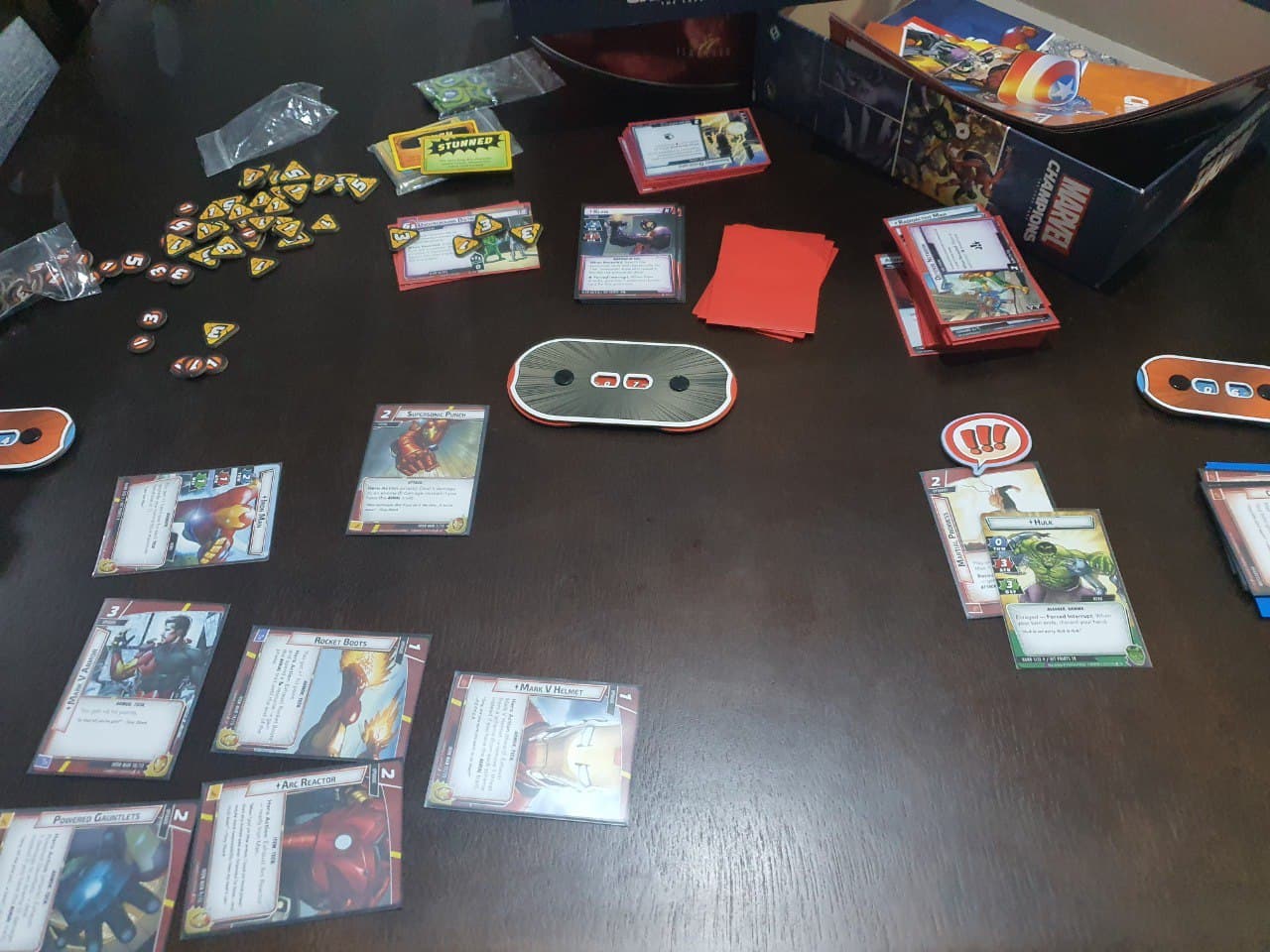
Game: Marvel Champions, the card game (a recent addition to my collection; the expansions are worth it).
“Multi-Handed” solo are games that were not meant for solo but you decide to play as 2 independent players. Usually these are competive games and will require some mental acrobatics. The results of your games will be you losing and winning at the same time. However, the objective of doing this is not winning per se but the mere act of playing. If you have a lot of PvP (player versus player) games in your collection then can consider doing this to give these games some attention.
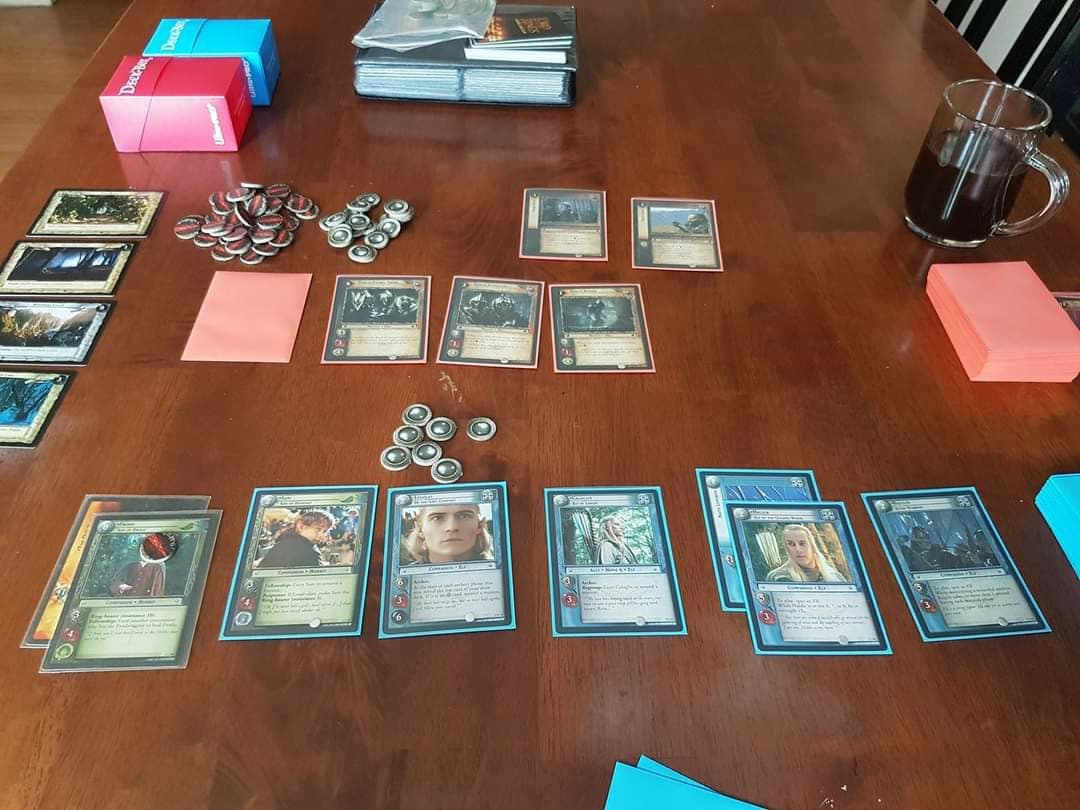
Game: Lord of the Rings, Trading Card Game by Decipher (I found a fan-made solo rules. So, I took this oldy-but-goody from hibernation).
“Solo Variants” are games designed for multi-player but requires a little bit of tweaking before you can play it solo. This may require you to remove or add certain gaming components or adjust game mechanics. Some manufacturers release games with a solo variant already designed and mentioned in the rulebook (like Roll Player) and this is what I call “Designed Solo Variants”. While there are games that do not officially come with a solo variant rule but a fan decided to tweak the game to make it solo-able (such as Marvel Legendary Deck Building and Star Wars LCG), which I classify as “Fan-Made Solo Variants”. For fan-made solo variants, you can look for the rules in Board Game Geek or YouTube.
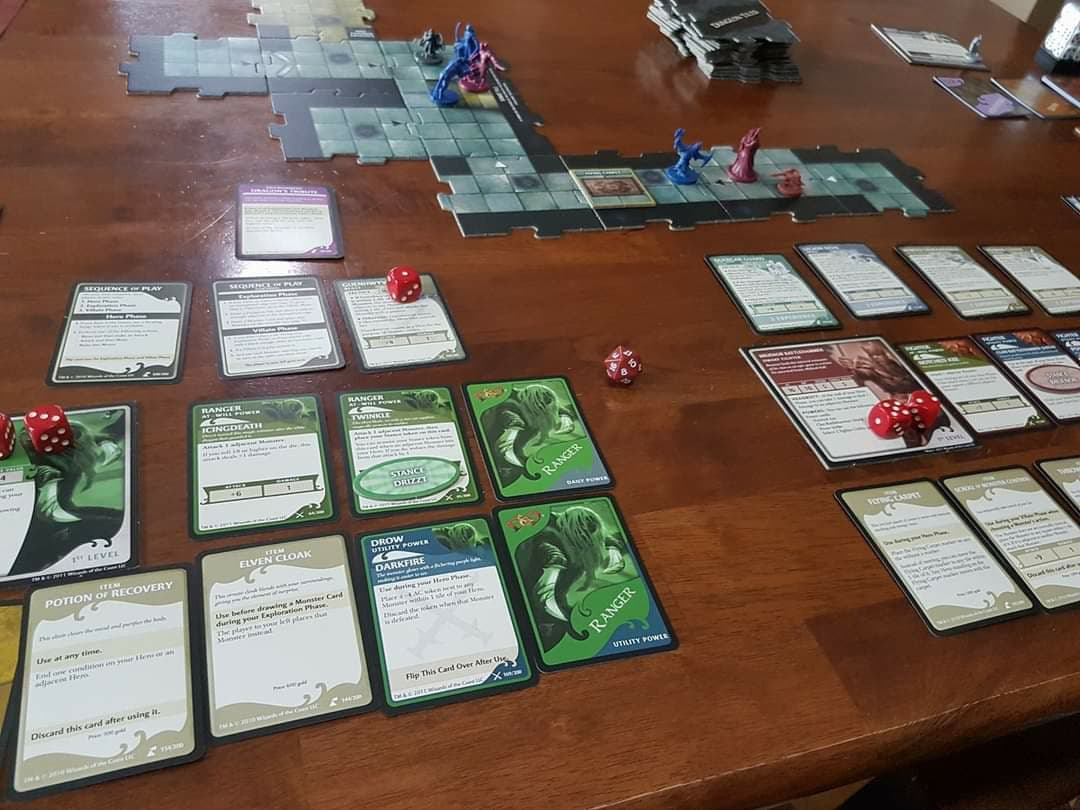
Game: D&D Legend of Drizzt (nice dungeon crawl; a little weak on scalability that's why I usually play with two heroes).
Finally, there are a small number of games that were specifically designed for solo gaming only. These are meant to be played by one player, and one player only (such as Unbroken). Try these out but if you want your games to be flexible for multiplayer games then you may want to choose the right “Solo Only” for your collection.
WHAT MAKES A GOOD SOLO GAME
Short answer, it depends.
While there are tons of “Top X Solo Games” all over the internet, I wouldn’t rely on them so much. It’s not that some games are good or bad but it boils down to a matter of personal preference. For example, I played One Deck Dungeon and Roll Player which usually lands high on “Top X” lists but I did not develop a long-term fondness for these games. Both games have pretty good mechanics but I didn’t find them exciting for solo. The final word I have about choosing a game for your solo gaming is “follow your taste”.
Here are a few things you may want to consider when choosing your solo game:
- THEME; Choose the theme or lore you are most happy with. You can go generic with fantasy, sci-fi, modern, historical, whimsical, or mystery. You can also go for specific lores such as Lord of the Rings, H.P. Lovecraft, Harry Potter, Star Trek, Warhammer, D&D, etc. Thankfully, we now have a plethora of games in the market that you can choose from.
- NARRATIVE; How deep do you want to be immersed in a story? Some folks like to keep it casual. While others (like me) would like to experience a story which provides a beginning, middle and end. Some story-driven games even have the narratives adjust to your choices.
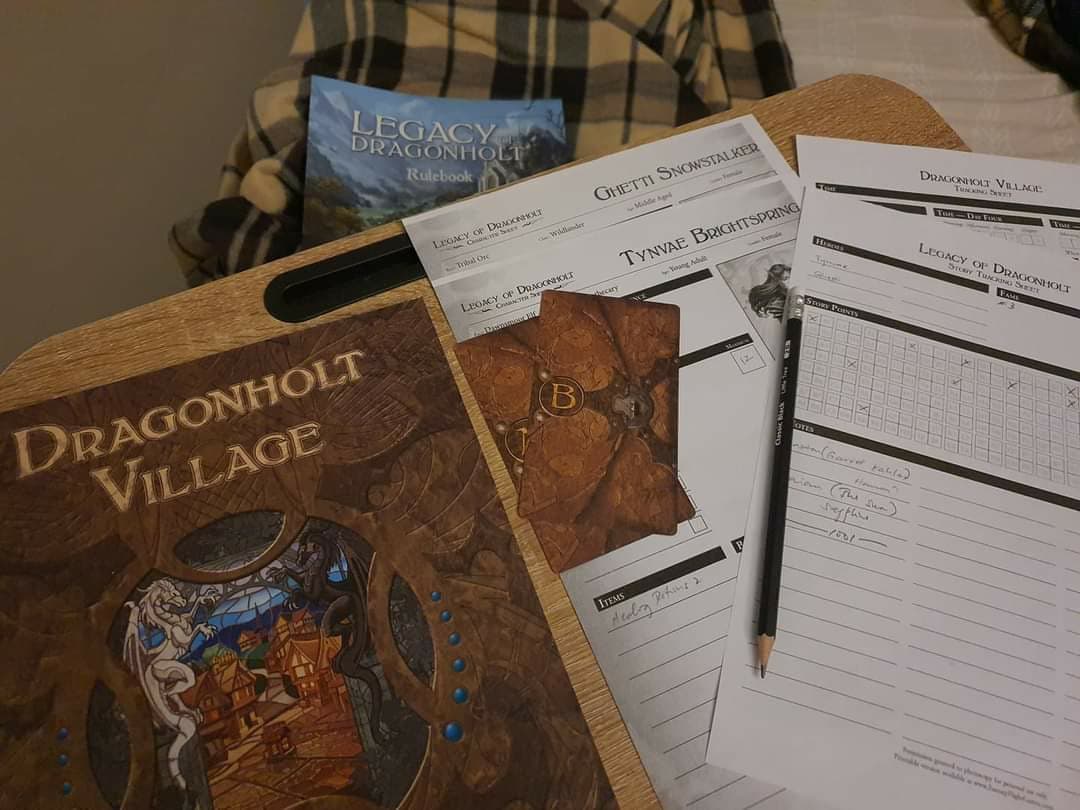
Game: Legend of Dragonholt (I have strong preference for story-driven games).
- GAME MECHANIC; Do you like deck construction, card shuffling, resource management, dice rolling, or dungeon crawling? There are so many gaming options to choose from. Find one (or many) that tickles your fancy.
- DIFFICULTY; To me, a good solo game should present a challenge. I often like to play games where my win ratio is 50% or less, especially games that can only be won by properly managing your resources or optimizing your moves.
- RE-PLAYABILITY; Most games are highly re-playable but you just have to be cognizant of why you want to play them over and over. Casual games do tend to lack character while story-driven games lose their magic after finding out the narrative.
- TIME COMMITMENT; If you are a busy person, you may only have 1 or 2 hours per week for solo gaming. If so, then you must choose games that you can have maximum enjoyment with. If you can afford some time to set-up the game, good for you. Find games that suit your timing requirements. (I suggest a dedicated gaming table so you can “pause” your games).
- OUT-OF-GAME EXPERIENCE; Do you want a game that you can just pick-up and play? Or do you want a game would keep your mind occupied even if you are not on the gaming table? If you are more of the latter, then games that require deck construction will really fit you perfectly. You can spend small amount of time to go through a card pool and find ways on how to optimize them. Games with miniatures can also aid this if you are a miniature painter (or if you are intrigued to start a new hobby).
- EXPANSIONS; There are two ways to look at expansions. The first one is to collect, which is perfect if you are someone who wants to devote time, effort and money on a game you really like. The other way of looking at these is that they offer a change in game play as some game expansions offer variety or adjustment to the core rules.
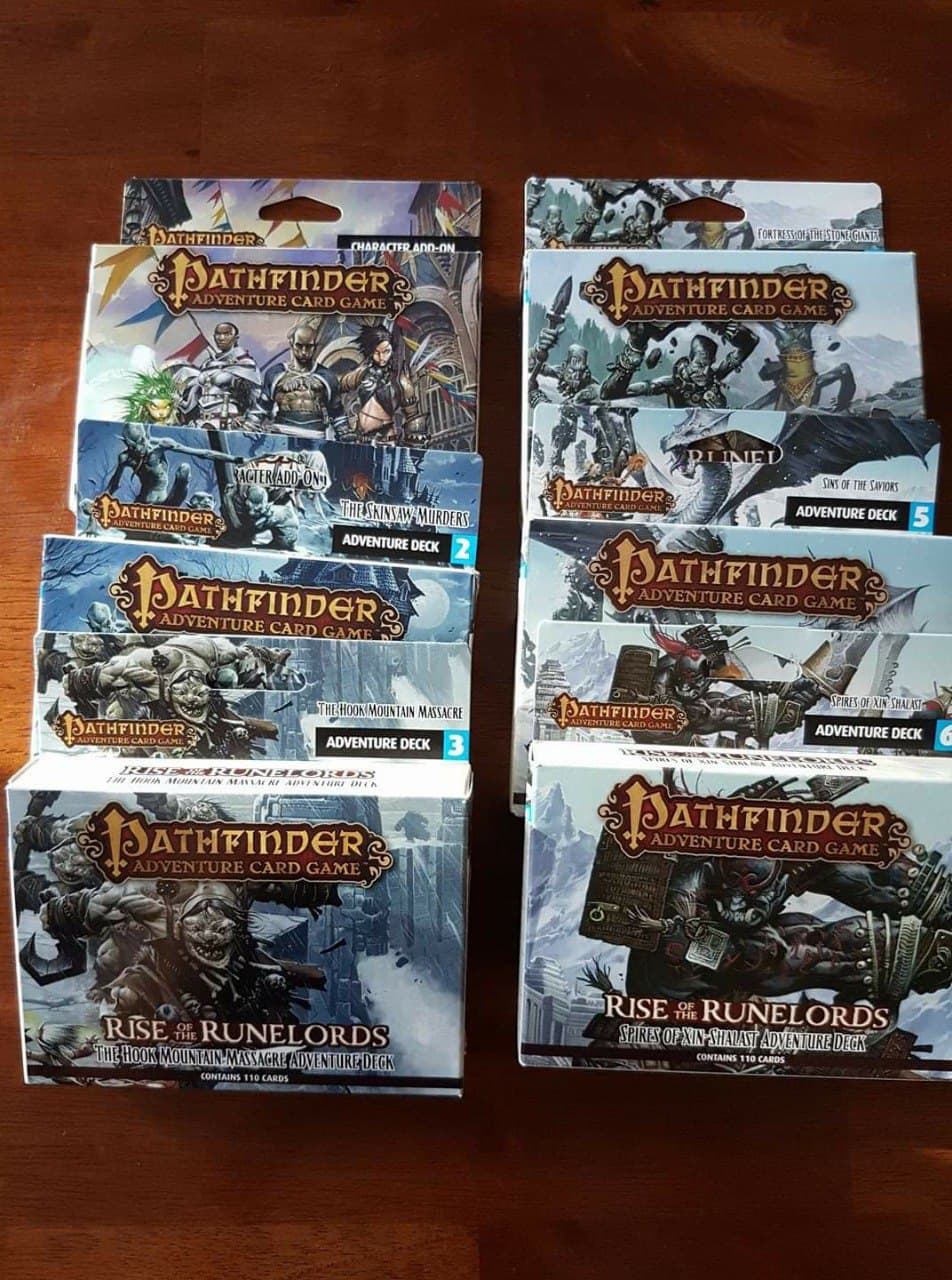
Game: Pathfinder Adventure Card Game (each of these scenarios offer their own variation to the gameplay).
- SCALABILITY; As mentioned earlier, playing solo doesn’t mean you won’t play multiplayer games anymore. It’s often good to look for games that offer good experience whether it is played by just one player or many. It’s also a good use of limited resources --- money and shelf space.
The beautiful thing about solo gaming is you can choose whatever you like and what suits your budget.
TIPS FOR A GOOD SOLO GAMING EXPERIENCE
Here’s a few suggestions on how to have maximize your enjoyment playing solo board games:
- Be comfortable. Don’t deny yourself of the fun you get nor be affected by others ridiculing you. Have others be comfortable with it as well. Your spouse, kids and pets should also know that you want to play solo. When you do, try to establish in the household that it is your “me time”.
- Find your spot. Whether it’s your dinner table, the living room or your home/office desk, look for a quiet place for your gaming. Preferably, away from children and pets but not too far so you won’t hear your spouse or kids if they need your help. If this spot is exclusively for gaming, you will have the luxury of “pausing” your games.
- Get in the mood. Put on your headphones and play your choice music. Sometimes I like to play thematic music that suits the board game I am playing. Bring out that bottle of Scotch or smoke a pipe. Change the light setting to something more relaxing.
- Have a journal handy. There are games I like to write down notes for and there are games that will require you to do so. Having a small notebook ready will give you that enjoyment factor. You can note down good combos or bad decisions.
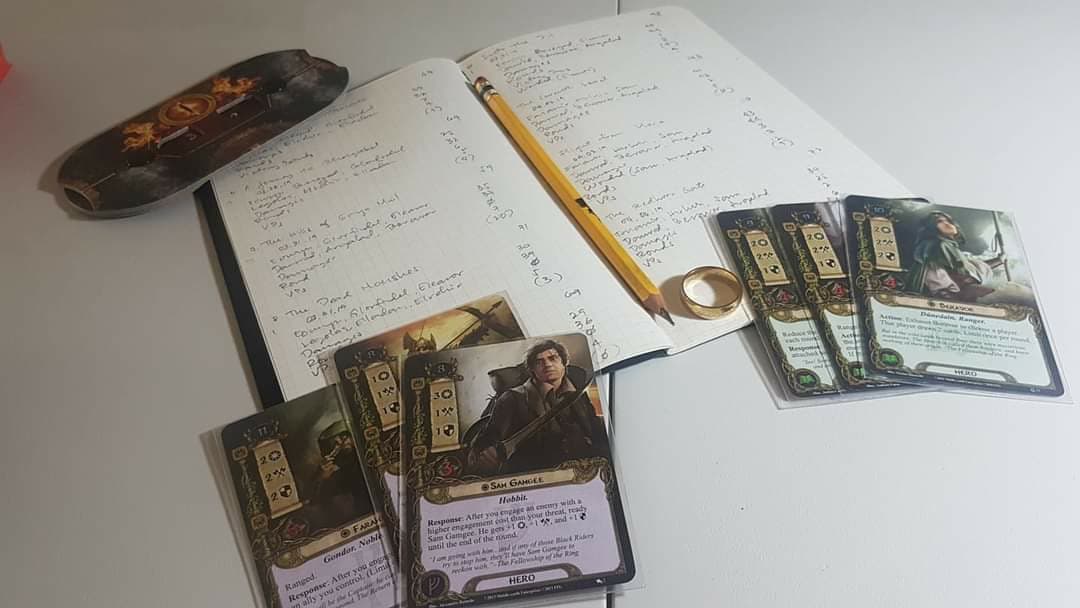
Game: Lord of the Rings, the card game (with a 20-25% win ratio, I decided to keep track of my failures and successes).
- Join communities. As solo gamers are not necessarily loners, we also love to reach out and socialize. Joining communities can help you learn good solo games and clarify rules.
FINAL THOUGHTS
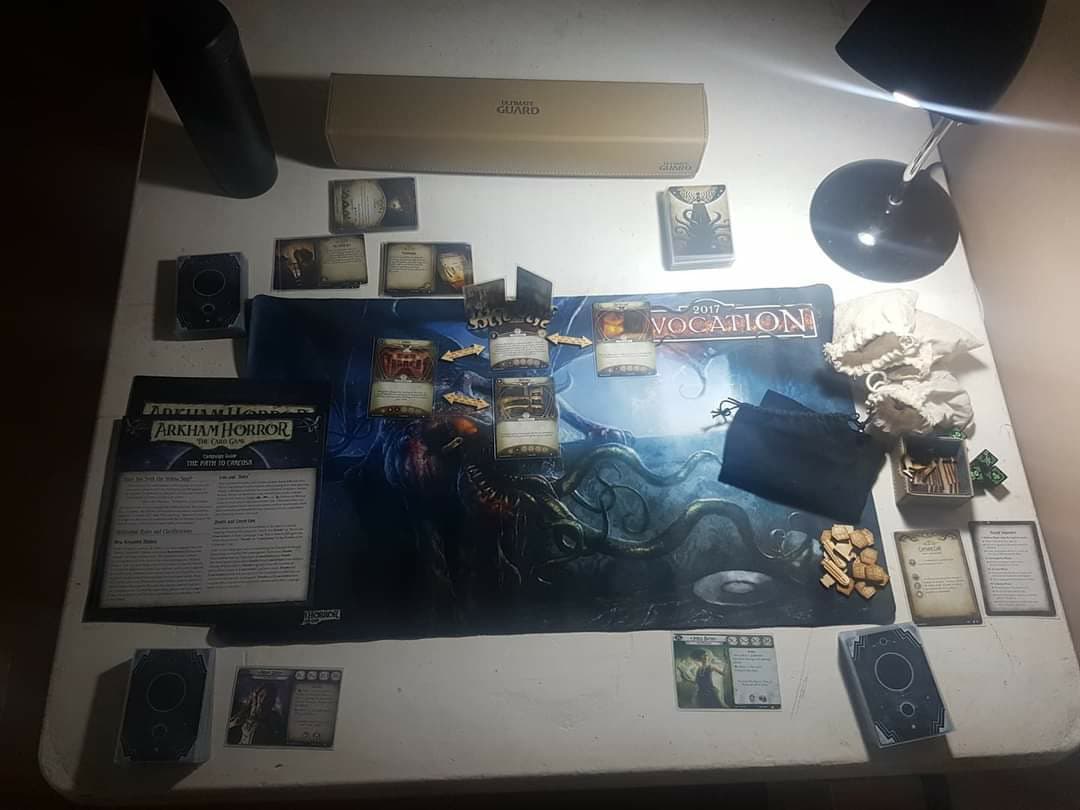
Game: Arkham Horror, the card game (I tend to get lost in the narrative; perfect for long weekends and Holiday breaks).
Solo board gaming is a valid playing option, especially for the busy gamers. If video games no longer entertain you, then consider tabletop games. Consider solo gaming as a therapy as well, a way to relax and just be with yourself being yourself.
Happy (solo) gaming!

